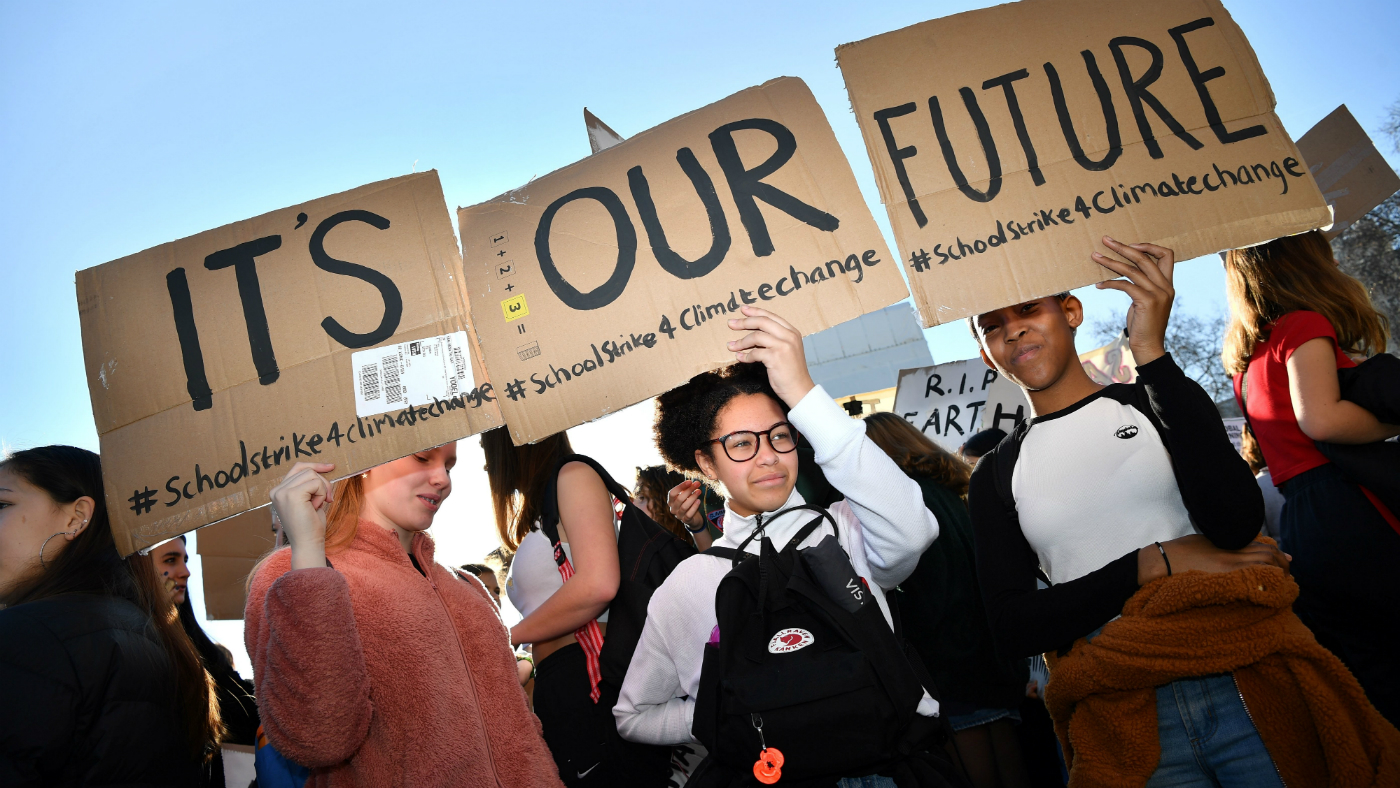Cop27: should the UK pay climate reparations?
Talks on ’loss and damage’ compensation for developing countries expected to dominate Cop27

A free daily email with the biggest news stories of the day – and the best features from TheWeek.com
You are now subscribed
Your newsletter sign-up was successful
The UK has suggested it is open to paying climate change reparations to developing countries by backing talks on the subject at the Cop27 summit that kicks off in Sharm El-Sheikh, Egypt today.
The idea of “loss and damage” compensation – otherwise known as climate reparations – has been under debate since UN-backed climate talks first began in the early 1990s.
Axios said the issue “is rooted in the disparate impacts of climate change around the world, with a relatively small group of countries – roughly the G20 nations – responsible for most of the warming-related impacts we’re experiencing today”.
The Week
Escape your echo chamber. Get the facts behind the news, plus analysis from multiple perspectives.

Sign up for The Week's Free Newsletters
From our morning news briefing to a weekly Good News Newsletter, get the best of The Week delivered directly to your inbox.
From our morning news briefing to a weekly Good News Newsletter, get the best of The Week delivered directly to your inbox.
By contrast it is predominantly countries in the developing world, particularly in Africa, South Asia and small island nations in the Pacific, that are most vulnerable to climate disasters, despite having played little part in causing them.
What have the papers said?
The last-minute agreement to include talks on “loss and damage” payments at Cop27 “might sound like the most dry processology you might ever have to read but actually history has been made today, before the event has even started”, wrote Allegra Stratton for Bloomberg.
With the cost of loss and damage for developing countries estimated to reach a possible $1trn by 2040, “who foots the bill is a question the rich economies responsible for the bulk of past emissions, and for current global warming, have been resolutely avoiding for years”, said Al Jazeera.
But opinion in those rich economies “has softened in recent years as catastrophic events such as the floods in Pakistan have focused global attention, and tension over the issue threatens to derail coordinated climate action”, said The Telegraph.
A free daily email with the biggest news stories of the day – and the best features from TheWeek.com
Unprecedented flooding last month left vast swathes of Pakistan submerged, causing more than 1,700 deaths and driving some 33 million people from their homes.
“The disaster puts Pakistan at the forefront of evolving thinking in the international community about how to pay for countries’ adaptation to the ravages of global warming – and who should pick up the bill,” said the Financial Times.
Bangladesh, another of the countries leading calls for loss and damage payments, could see a third of its agriculture lost and its GDP fall 9% by 2050 due to climate change impacts, a new World Bank report has found.
This is why loss and damage financing was a “top priority” in the run-up to the Cop summit, said Sohanur Rahman, executive co-ordinator for YouthNet for Climate Justice in The Business Standard.
“We are not asking for charity or debt from developed countries, but rather reparations for their historical legacy in the climate crisis,” he argued.
What next?
Progress on climate reparations is likely to dominate this year’s summit and ultimately be the barometer by which it will be judged a success or a failure.
Industrialised nations remain “skittish about committing to a specific way of paying for it”, said Axios, a stance that “will come under pressure in Sharm el-Sheikh, as developing countries seek specific funding arrangements given how quickly climate disasters are ratcheting up in scope, severity and frequency”.
For their part, developed countries, including the UK, “have long pushed back on agreeing to the principle that they should pay for the impacts of climate change, fearing a cascade of reparation demands that will play out badly in domestic politics”, said The Telegraph.

The paper set out the dilemma facing many leaders amid a cost-of-living crisis by arguing that Rishi Sunak, who was due to address the summit later today, will “come under pressure in Egypt to agree to a costly deal on reparations at the same time as he draws up plans for sweeping domestic tax rises and spending cuts”.
Appearing on BBC’s Sunday with Laura Kuenssberg, the shadow climate and net zero secretary Ed Miliband insisted it was “morally right” to hand money to poorer nations that are “on the frontline of the climate crisis” and that it would also be in Britain’s “self-interest” to boost aid to developing countries.
Yet using taxpayers’ money to compensate poorer countries affected by climate change at a time when domestic spending is being cut will be a hard sell. As MailOnline noted, Pakistan’s receipt of foreign aid from Britain has “often been criticised due to the Asian country’s development of a space programme and nuclear weapons”.